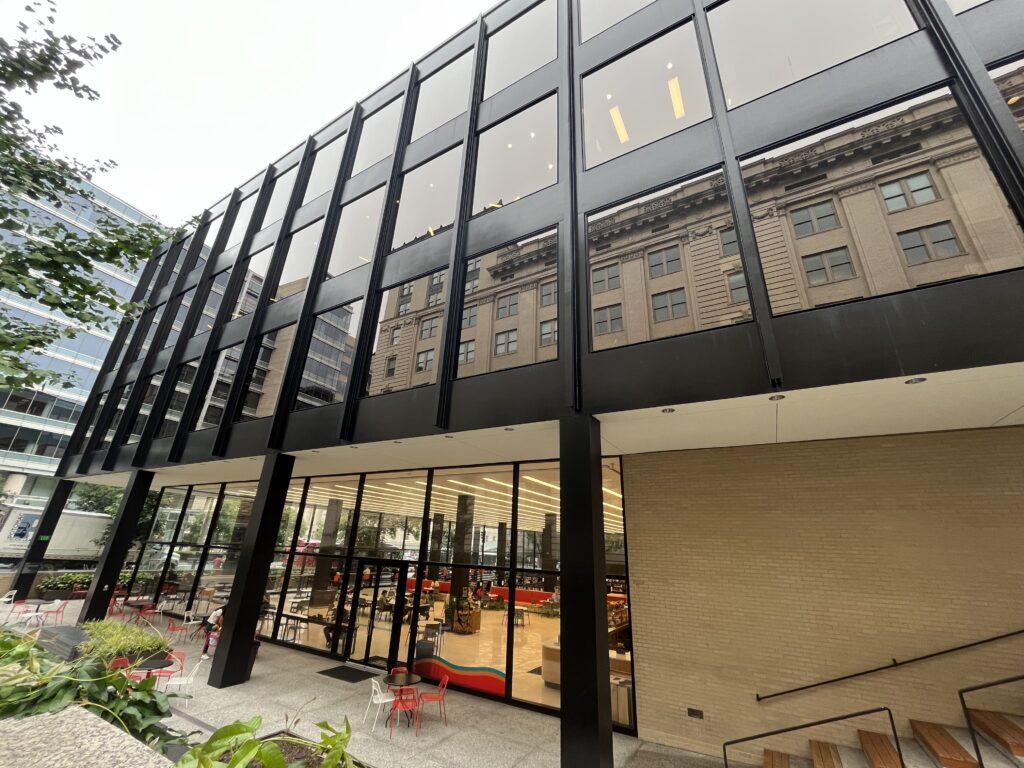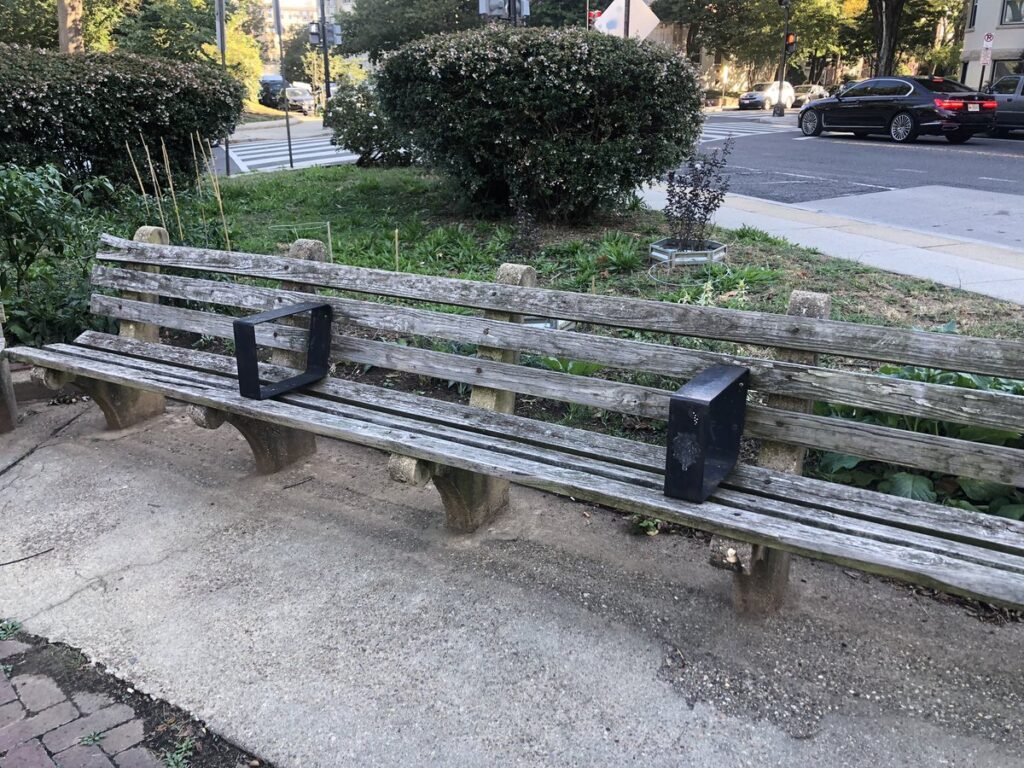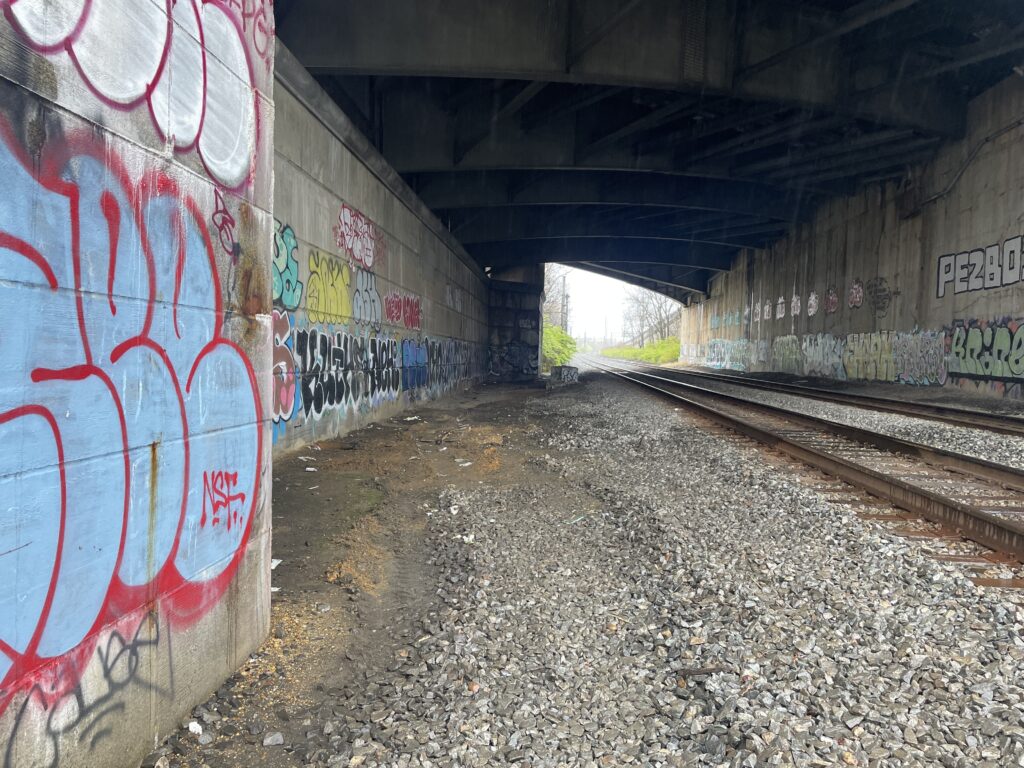Often I walk past my public library branch at closing time in northwest D.C. and see a homeless, forlorn-looking person on an outside bench. I wonder what their story is, what will become of them. Are those who are best able to help reaching out to them?
Certainly, I thought of those questions when, as a D.C. Public Library librarian, I parachuted from another branch into the new Northwest One branch, located in the Walker-Jones Education Campus. Back then, I was impelled by self-belief (some might say “arrogance”), insecurity and mission.
At the Northwest One branch, many users were impacted by homelessness, joblessness, and/or mental health problems. I often failed to connect with users while another staffer often succeeded at what I hoped to accomplish.
Soon I left for another branch and then, eventually, was laid off. (A latter Northwest One librarian experiencing difficulty there was Amanda Oliver, as her deeply introspective book “Overdue: Reckoning With the Public Library,” makes clear).
People in libraries experiencing homelessness or mental health problems are not new. A 1980 Washington Post story noted the Psychiatric Institute of Washington conducted classes for the Library of Congress staff on dealing with “disruptive/disturbed” users, many released from institutions such as St. Elizabeth’s. Back then, the emphasis was often on maintaining order, not necessarily helping the people who needed it.
Fortunately, D.C. Public Library (DCPL) and other urban library systems are striving to better serve users experiencing homelessness, and/or suffering from mental illness, substance abuse problems and joblessness.
Jean Badalamenti, DCPL’s manager of health & human services (HHS), believes “the library is the only place with walls and a roof that is low barrier.” Neither an ID or admission ticket is required. “You just walk through the door,” she says. In winter and summer, it’s the one of the only places during the day where many unhoused people can find warmth or cool air.
In 2009, San Francisco’s Public Library was the first to hire a social worker. In 2014, DCPL signed up Ms. Badalamenti, an upbeat, straight-talking social worker. Part of her job then involved helping DCPL staff to better serve people at-risk, including the so-called “disruptive” users.
But an important part of Badalamenti’s job involved forging partnerships to better leverage help for people at-risk, including an early partnership with Pathways to Housing to provide outreach at the main library before it closed for renovations. Now her department partners with D.C.’s Department of Behavioral Health, which provided funds from a federal program to DCPL to hire three, 30-hour a week peer specialists (aka peer navigators/PNs) as contract workers. Eventually, HHS obtained funding from city council, and this current fiscal year, its staff includes Badalamenti, a full-time clinical social worker and four full-time PNs.
The PNs surmount problems experienced by their clientele, including returning citizens, by knowing which local organizations to reach out to for help. They provide a sounding board for people confronting crises and help them deal with bureaucratic problems such as obtaining needed identification.
One Wednesday at 11 a.m., I visited the Martin Luther King Junior Memorial Library to attend a “Coffee and Conversation” session moderated by Tracy Tobin, an experienced PN, who projects authoritativeness and approachability. She told attendees, many of whom were unhoused that, despite her middle class upbringing, she too suffered from substance abuse, homelessness, living in shelters, substance abuse and other challenges, including a later, serious struggle with Covid.
After the session ended, Tobin, a new addition to HHS, related how she became a PN, originally working with other D.C. government agencies. Not only could she relate to other people’s problems because of her own experiences, using it to build trust, but intensive training equips her with the knowledge and skills to help address their needs or to find the help that can. Tobin is also trained in de-escalation techniques to help defuse tense situations.
And while the library cannot directly provide housing or medical care for people, it can direct them to the organizations and city agencies that often can help. It partners with DBH to offer DCPL staff voluntary training on how to administer Narcan, which Tobin says is available at all branches. In fiscal year 2022, DCPL, through funding by its foundation, provided 350 care kits with clothing and toiletries to help users in need during winter and summer. Almost 200 Flow Bags (containing feminine hygiene products) for women were provided.
An immediate challenge is the requirement forcing many Medicaid recipients post-Covid to reapply for benefits. Badalamenti notes HHS PNs will work with the library’s new digital navigators to help people to complete complicated online re-enrollment forms.
Perhaps most importantly, Homelessness 101 training is provided to staff twice yearly with partners such as Friendship Place, which Badalamenti credits with improving how library workers treat homeless people.
The book “Overdue” cataloged how larger “systemic problems” in our country impacts at-risk library users. Certainly, neither DCPL nor city government has a magic wand to erase problems like homelessness or mental illness. But DCPL’s efforts to better serve its users in need is an important investment in D.C.’s citizens.
Badalamenti stresses: “I’d like to build up the staff so we can direct as many people to help in as many branches as we can.”
Steve Lilienthal is a freelance writer living in Washington, D.C.








